The separation of a family due to divorce is an emotionally challenging and complex process, particularly when it involves the determination of child custody and access arrangements. As decisions surrounding the care, upbringing, and living arrangements of children carry substantial consequences for their well-being and the family’s future, it is imperative for parents to understand the legalities of child custody and access in British Columbia.
In this article, we will provide an in-depth examination of child custody and access laws within the province, offering insights into the factors influencing the court’s decisions, the various custody and access arrangements, and the importance of developing a parenting plan. Keep reading and understand how the skilled family law attorneys at Pathfinder Law can offer invaluable support and representation throughout the custody and access process, ensuring that your children’s best interests are protected and prioritized at every turn.
1. Factors Influencing the Court’s Decisions on Custody and Access
When determining child custody and access arrangements in British Columbia, the primary consideration is the best interests of the child. The provincial Family Law Act outlines several factors that the court takes into account when deciding custody and access, including:
- The child’s physical, emotional, and psychological needs;
- The child’s views and preferences, if appropriate;
- The nature and strength of the child’s relationships with parents and other significant individuals;
- The ability and willingness of each parent to facilitate and encourage the child’s continued relationships with the other parent and other important people in the child’s life;
- The history of care and involvement of each parent in the child’s life;
- The potential impact of changes in the child’s living arrangements;
- The quality and stability of each proposed living situation;
- Any history of family violence or substance abuse;
- The ability and willingness of each parent to cooperate regarding decisions about the child’s care and upbringing;
- And any relevant civil or criminal proceedings involving either parent or the child.
2. Different Types of Custody and Access Arrangements
In British Columbia, custody and access can come in various forms:
- Sole Custody: One parent has sole decision-making authority over the child’s care, upbringing, and daily activities. The child typically resides primarily with the custodial parent, while the non-custodial parent may have specified access or visitation rights.
- Joint Custody: Both parents share decision-making authority regarding the child’s care and upbringing, and may also share physical custody, meaning the child spends significant time living with both parents. This arrangement is also known as shared custody or shared parenting.
- Split Custody: In cases involving multiple children, each parent has custody of one or more children, with the children alternating residence between the two households.
- Access and Visitation: Access refers to the right of a non-custodial parent or other significant individuals (e.g., grandparents) to spend time with and maintain a relationship with the child. Visitation agreements may vary, ranging from specific schedules to reasonable access determined by mutual agreement between the parties.
3. The Importance of Developing a Parenting Plan
A parenting plan is a detailed, written agreement outlining the arrangements and expectations related to the care, upbringing, decision-making, and division of responsibilities regarding children following a separation or divorce. Developing a comprehensive parenting plan allows parents to establish a consistent, predictable routine for their children while minimizing potential conflicts and misunderstandings. Key components of a parenting plan may include:
- Allocation of Decision-Making Authority
- Scheduling and Division of Parenting Time
- Communication Protocols
- Dispute Resolution Mechanisms
4. How Pathfinder Law’s Family Law Attorneys Can Help with Child Custody and Access Matters
Navigating the complexities of child custody and access in British Columbia requires skilled legal guidance and support. At Pathfinder Law, our team of experienced family law attorneys can assist you with all aspects of the custody and access process, offering services such as:
- Legal Advice and Representation
- Advocacy in Court
- Negotiation and Mediation
Securing the best outcome for your children during the divorce process is of paramount importance, making it essential to partner with a compassionate and skilled family law attorney who can provide support and representation throughout the custody and access journey.
At Pathfinder Law, our team of divorce lawyers in Abbotsford is committed to protecting your children’s best interests, offering the guidance and advocacy necessary to navigate this challenging time and secure a stable, healthy future for your family. Trust in Pathfinder Law to help you achieve the best possible outcome in your child custody and access case, enabling you to embark on a brighter, more harmonious future for you and your children. Contact us today.


